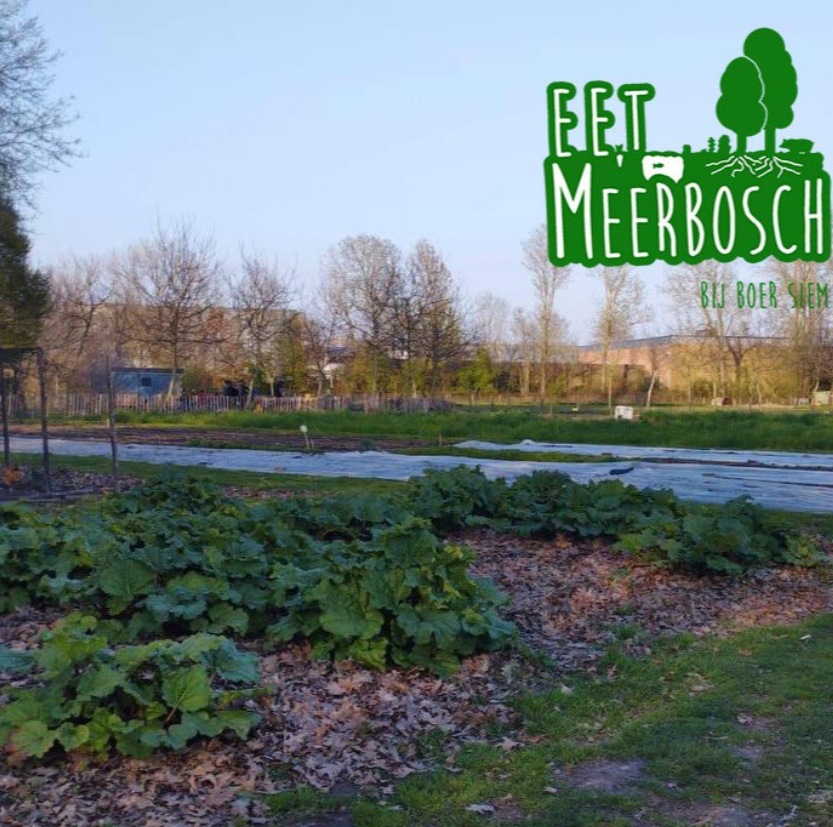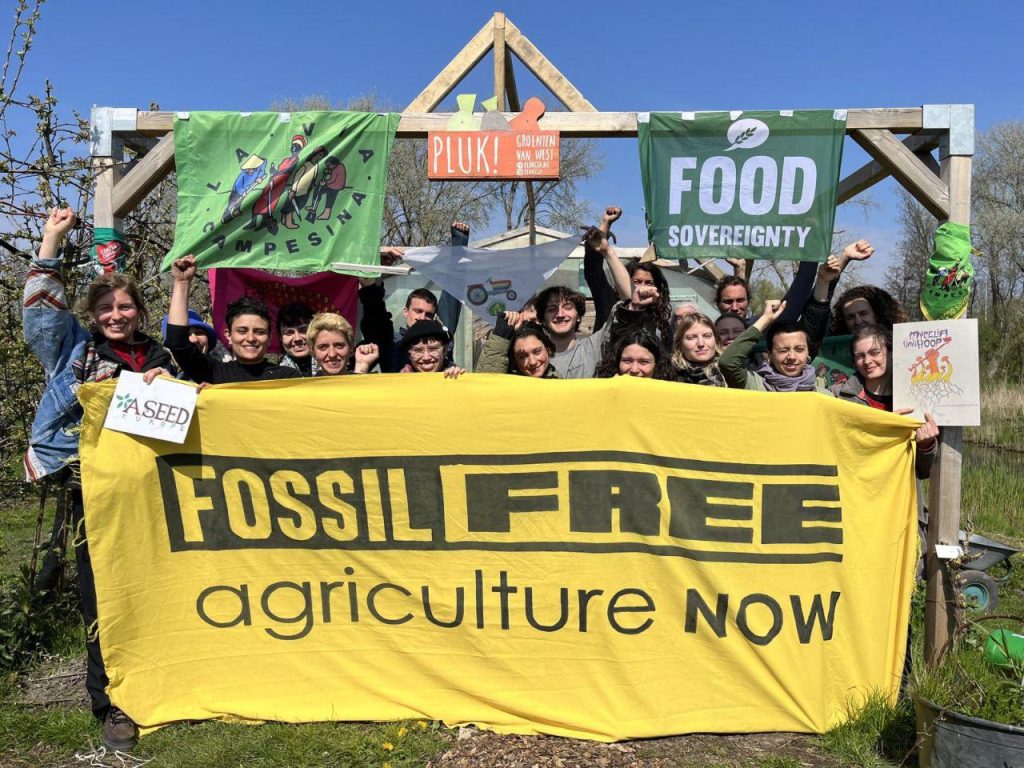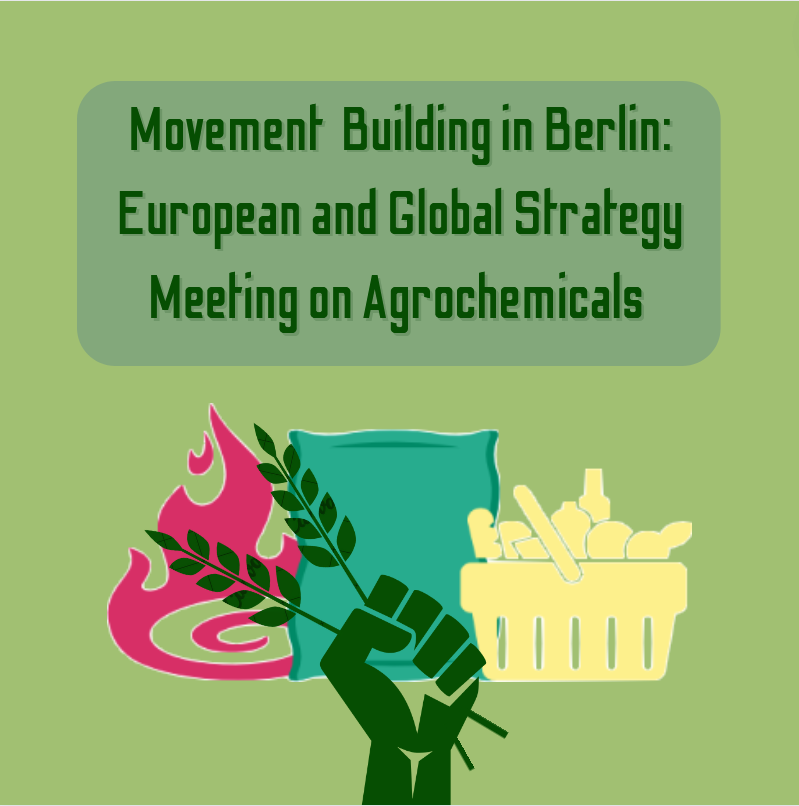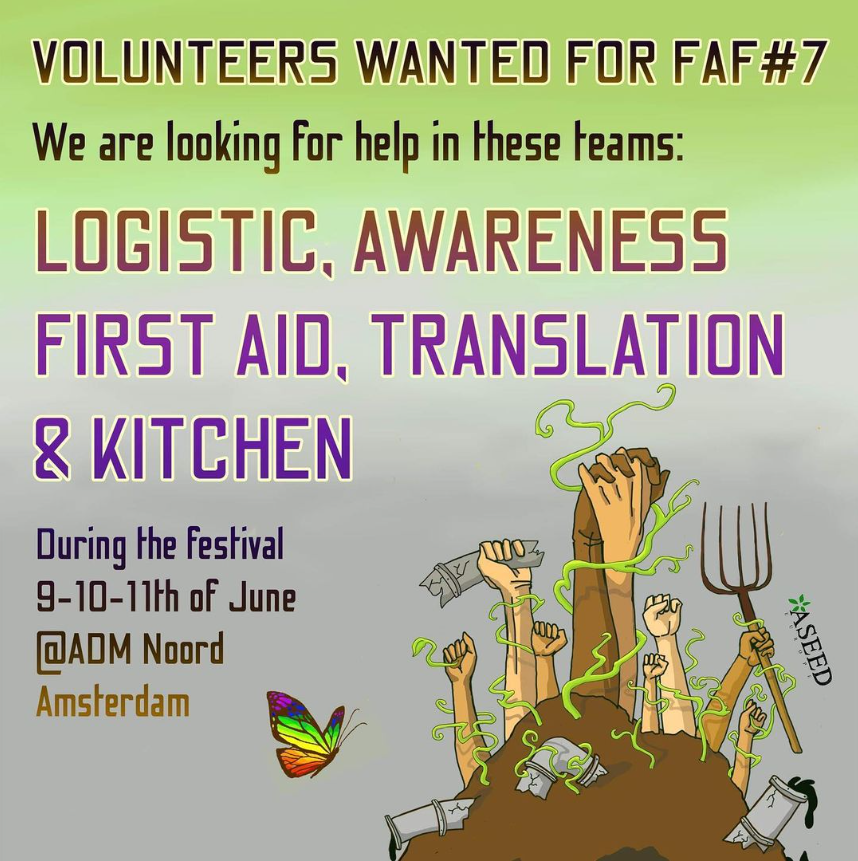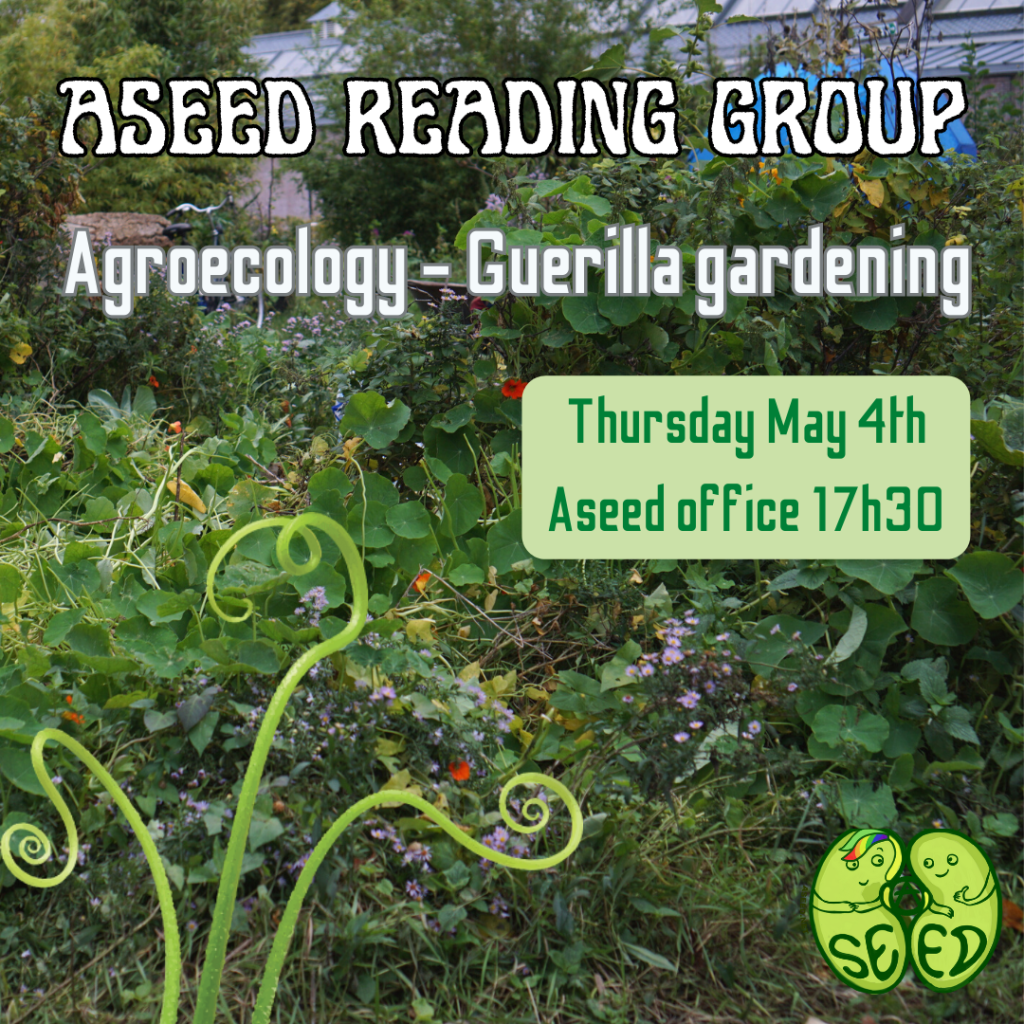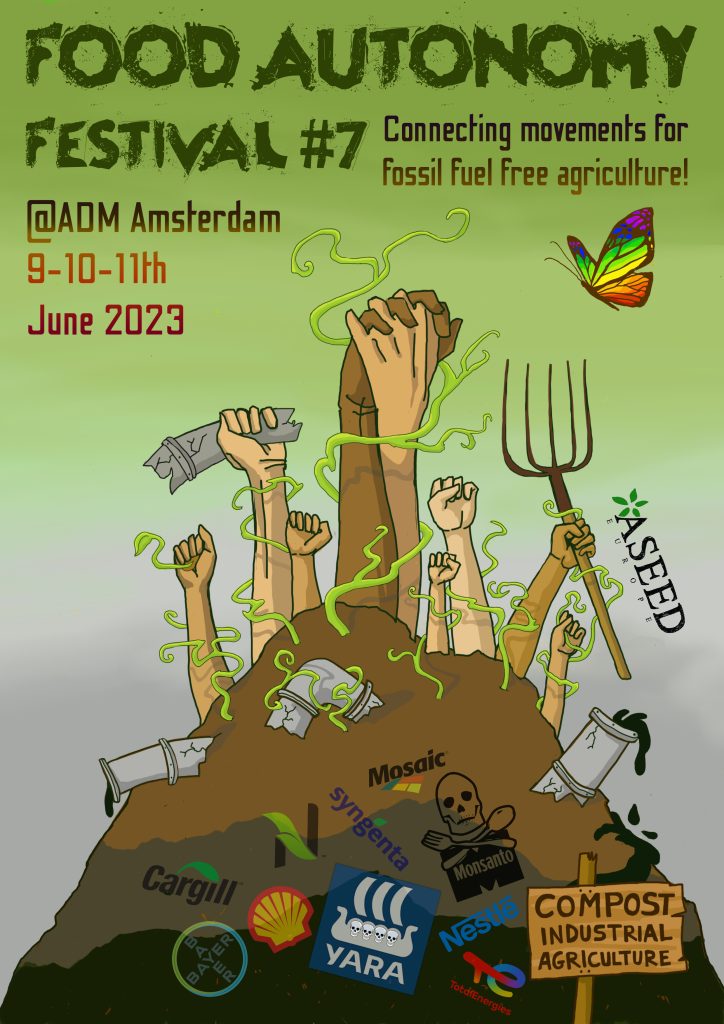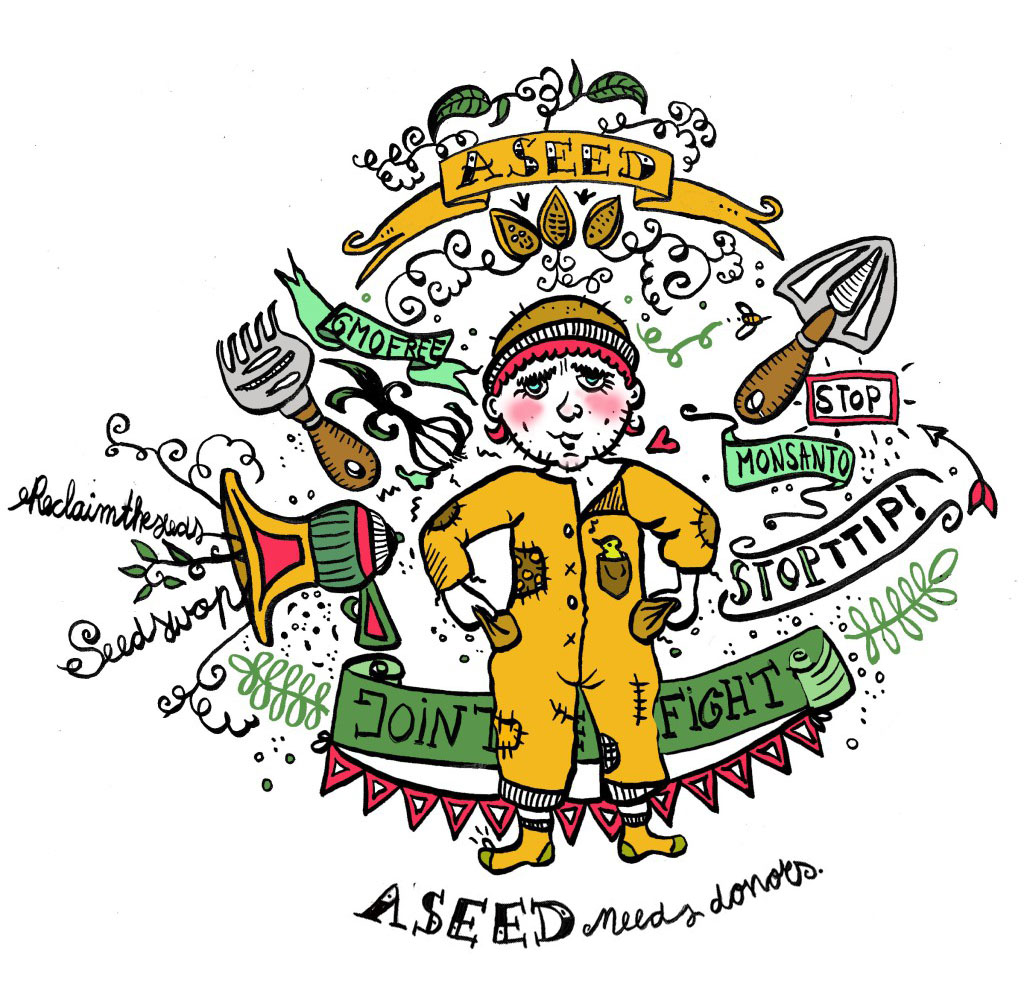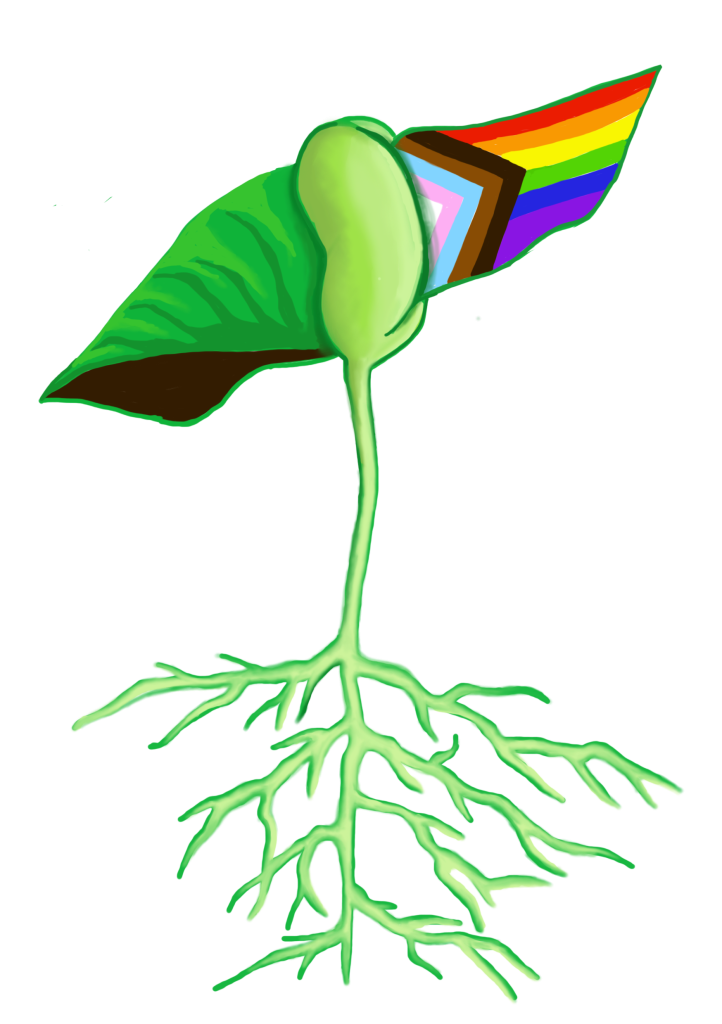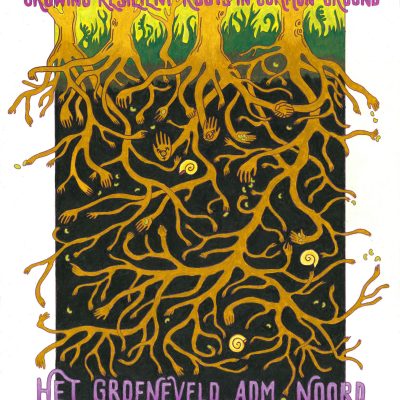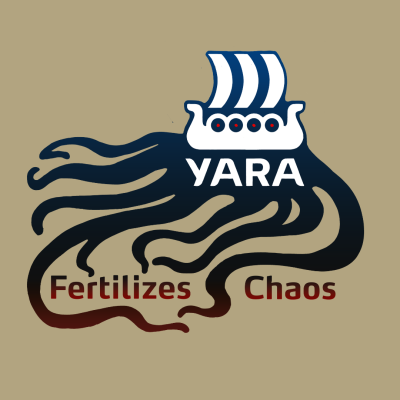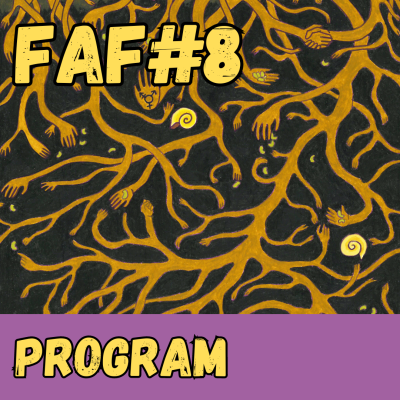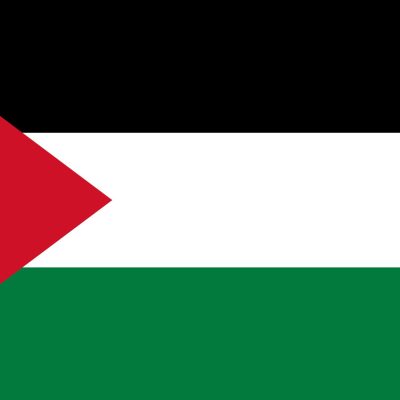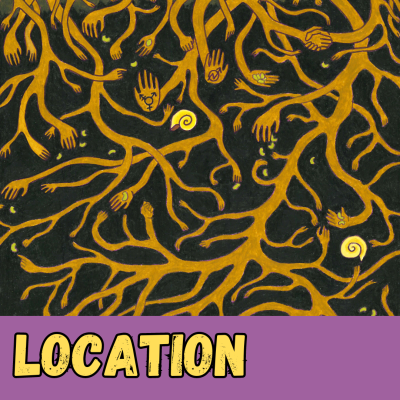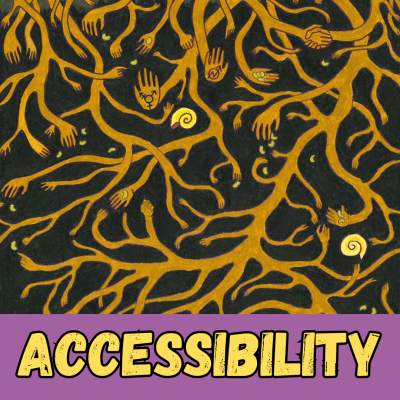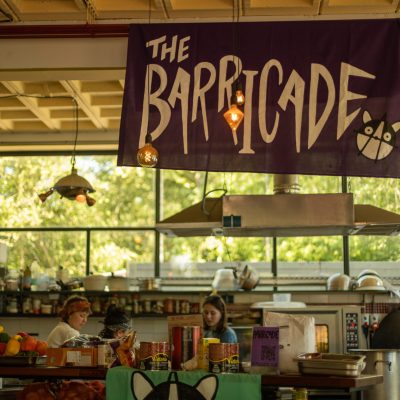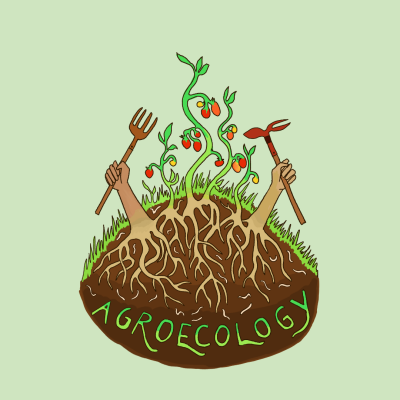Dear friend, comrade and supporter,
The May newsletter is here!
In the past weeks the weather has allowed us to do a few solidarity farming visits on CSAs, where we helped farmers with some bigger tasks, while (re)connecting with fellow activists and food fanatics.
We also attended the Strategy Meeting on Agrochemicals in Berlin, which helped us boost our knowledge and gave us a lot of inspiration and hope to keep fighting!
This month, we are mostly busy with the last Reading Group of the season and many preparations for the 7th edition of the Food Autonomy Festival, coming up in June. We are very excited for it and we hope that you are as well!
As always, we continue to focus more on our Fossil Free Agriculture campaign, by trying to dismantle colonial, patriarchal, destructive food systems that destroy life! Enemy nr.1 remains, of course, YARA, Europe’s biggest nitrogen fertilizer company that is greenwashing their dirty practices more than ever.
Enjoy reading our newsletter, and we hope to see you soon at one of our upcoming events!
Love & Rage,
the ASEED team
❓ What is the Fossil Free Agriculture Campaign ❓
With this campaign, we aim to expose the corporations that profit from the industrial agriculture system. These corporations contribute substantially to the climate crisis and take a disproportionate amount of the wealth. By focusing on the use of fossil fuels in the corporate-controlled industrial food system, we aim to expand the concept of climate justice to include agricultural justice. We do this by connecting the fossil fuel-focused climate movement and the food sovereignty movements, while opening a conversation about the structural links between the agro-industry and the fossil fuel industry, and the major role they play in the escalating climate, ecological and social crises.
What role does the Netherlands play in this?
The Netherlands functions as Europe’s most important distribution centre for both fossil fuels and industrial agriculture. The largest factory of the biggest nitrogen fertilizer company in the world (YARA) is located in Sluiskil, Zeeland. To make matters worse, this country hosts a huge and ruthless industrial livestock industry and functions as a European hub for the distribution of genetically modified soy imports. On the political level, the Dutch government is enthusiastically promoting the intensification of industrial food production, harmful and undemocratic trade agreements and risky new GMO techniques. Taking action here, in our own back yard, is clearly both urgently necessary and of strategic importance!
Click here to learn more about our campaign!
🌱 LOOKING BACK 🌱
🌱 ‘Mycelia van Hoop’ collaborated with Reclaim the Seeds Nijmegen 🌱
On April 9th we co-organized the second day of this amazing festival. This was also the 4th working day we organize as part of this initiative from the Dutch Agroecology Network. For this occasion we were invited to join and actively support the Community supported Agriculture (CSA) project Eetmeerbosch.
The day was sunny and warm and we started by having tea & coffee while Siem shared his knowledge and experience with food forestry, which is a diverse planting of edible plants that attempts to mimic the ecosystems and patterns found in nature.
After that Rens and Tobia facilitated a workshop called ‘Befriend your local ecology’. We were invited to use our senses and question ourselves on the interrelations between trees, plants, insects, and other living beings while we explored the food forest project in Eetmeerbosch.
After getting to know each other and ground ourselves in the place it was time for us to make use of our muscles and get our hands dirty! We worked on the ‘heart’ of the farm and build a relaxing space to get together where social gatherings can be organised. Practically we formed different groups that worked on specific tasks: building a huge fireplace with DIY wood benches, remodeling a chicken house to have an indoors space, planting and preparing the soil, and preparing a meal from veggies that were freshly harvested. Within a few hours and in a friendly atmosphere we had transformed the place!
We finished the day with an inaugurative bonfire, while sharing some delicious food and hearing more from Irma about the social component of this very inspiring initiative!
We’re very happy with how the day went and excited to keep growing and actively supporting this network of places of hope and resistance where the change in our food systems is already happening!


Click here to learn more about Mycelia van Hoop!
✊ 17th April: International Day of Peasant Struggles ✊
Resist repression! Faced with global crises, we build food sovereignity to ensure a future for humanity!
On the International Day of Peasant Struggles we co-organised a collective farming event in order to work the land together, share a strong collective statement and show solidarity with other land struggles.
With the collaboration of Toekomstboeren, Cityplot, Boerengroep, Mycelia van Hoop & ASEED, the farmers from Pluk! were happy to host us for a half day in the fields in order discuss together about national and international peasant struggles, how to give visibility and actively support other grassroots groups working on food sovereignty social/food justice and have further discussion about the agroecology movement in our territories.
If you want to know more, check out the full call-out from La Via Campesina here!
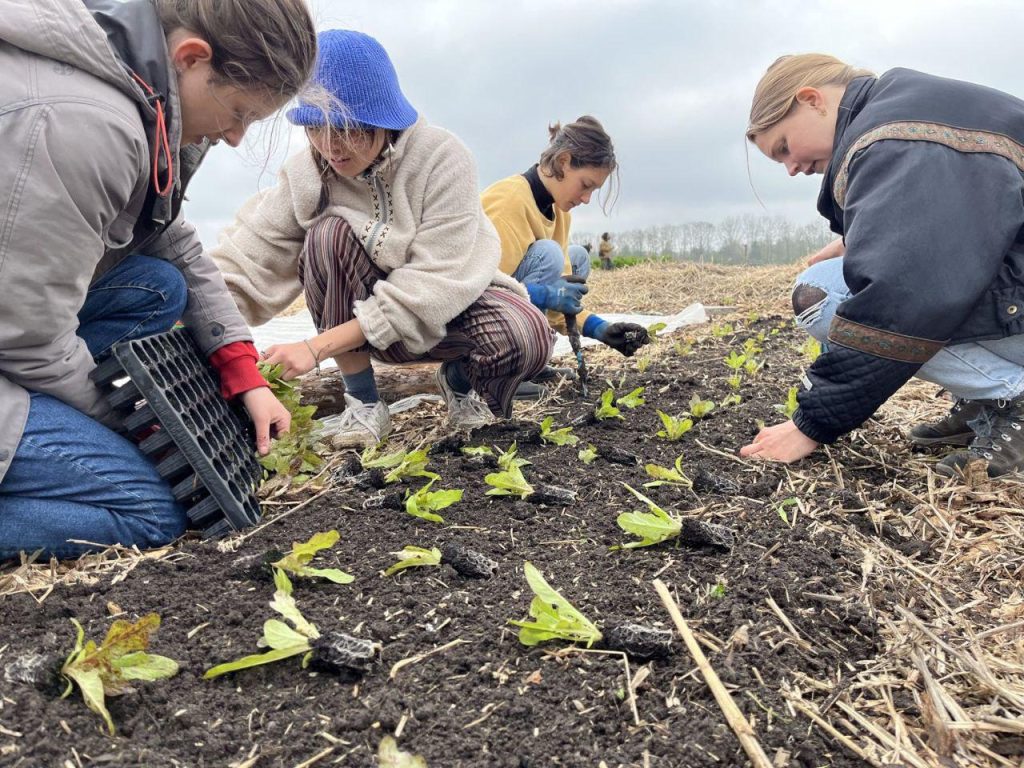

Click here to learn more!
💥 Strategy Meeting on Agrochemicals 💥
In the end of April, we participated in the European and Global Strategy Meeting on Agrochemicals, organised by the Heinrich Böll Foundation, Panta Rhea Foundation and the Center for International Environmental Law.
Plastic pollution crisis and burning of fossil fuels are very commonly exposed causes of the current climate crisis. However, a third and very important contributor to the fossil economy, being the agrochemical industry, is often overlooked.
Petrochemicals, which are used in chemical-based fertilizers and synthesizing pesticides are a crucial element of the industrial agricultural systems. Their use is heavily subsidized by governments and negatively impacts farmers worldwide, but especially in countries of the Global South.
During the strategy meeting, we have discussed how exposure and awareness of connection between fossil fuels and agrochemicals is crucial in the fight against climate change as well as addressing neocolonial dependencies within the global agricultural system.
We are excited to have gotten the chance to meet other collectives, individuals as well as researchers within the environmental and climate justice movement. We are happy to participate in awareness and movement-building for the ways in which agrochemicals, specifically nitrogen fertilizers and companies profiting from them, participate in the acceleration of the climate breakdown and ecosystem collapse.
We believe this was an important moment that can start a broader movement focusing on this crucial but overlooked aspect of the climate crisis.
Click here to learn more!
🌱 NEWS 🌱
Article: Unpacking the word “Peasant”
We found this article, that our comrades from A Growing Culture wrote, very important and we thought we will share it with you here:
The term “peasant” is loaded with a heavy history. When you hear the word “peasant”, what do you feel? Pride? Discomfort? Guilt? Sadness? Anger? Superiority? Inferiority? Something else?
The term still makes many of us uncomfortable because we’ve most often heard it used in a derogatory way. But what does it actually mean? Why are more and more movements struggling for food sovereignty worldwide reclaiming it and self-identifying as peasants?
Click here to continue reading!
💡 5 facts about soil health 💡
1. Healthy soil is teeming with biodiversity: The hidden world beneath our feet comprises more biodiversity than the densest of forests, and we are still learning how the soil’s complex components interact with each other and affect us.
2. Healthy topsoil plays an essential role in the ecological crises we face and is rapidly disappearing. Healthy soil is necessary to grow nutrient rich food, store carbon from the atmosphere, increase biodiversity and withstand droughts, erosion and flooding.
3. Agricultural soil is severely harmed by synthetic nitrogen fertilizer (SNF).
4. Legumes can naturally supplement the soil with nitrogen. This is a sustainable and chemical-free alternative to SNF, and can be done by inter-cropping (mixing legumes and other crops on the field) or cover-cropping (alternating between legumes and other crops yearly).
5. Healthy soil can contribute to sequestering carbon in the ground.
Click here to learn more!
📢 ASEED is seeking volunteers for this year’s Food Autonomy Festival #7 📢
Would you like to participate in this year’s edition of the FAF? Are you motivated to take an active part in organisation of the festival? Do you have a couple of spare hours or days to help out? Then join us between 9-11 June at ADM Noord in Amsterdam as a volunteer.
We are currently seeking volunteers for five teams: Awareness, Logistics, Kitchen, First Aid and Translation (click here to learn more).
Volunteering includes participation during the festival duration and a short training session for members of the Awareness team on the topic of basic conflict resolution, intersectionality, and anti-oppression. No previous experience or skills are needed for either of the groups, with the exception of the First aid role, where we are looking specifically for people who have passed a first aid training. The working hours are flexible and we can try to work around everyone’s schedule.
💸 We are unfortunately unable to financially compensate our volunteers. As a thank you, we will offer free food and some drinks at the festival, as well as a small gift. It is also a great way to engage with ASEED and the FAF, and learn a valuable skill that can be used for other movements and events.
📞 Interested? Send us a message at info@aseed.net by the Sunday 11th of May (but the sooner, the better!). If you are applying for the Logistics team, please mention which of the tasks would you like to help with, in case you have preferences or specific skills, like drivers license, knowledge of audio equipment. Let us know in case there are any accessibility issues we can help you accommodate. We are very excited to hear from you!
❗ Help ban the export of bee-killing pesticides ❗
Our comrades from We Move Europe have started a petition to ban the export of bee-killing pesticides!
Dangerous pesticides are banned in Europe – but they still get exported to Africa and South America, killing bees and devastating communities. We need the EU Commission to outlaw the export of banned pesticides!
The evidence is clear: neonics and other poisonous pesticides kill bees. That’s why they’re banned in Europe. Yet European companies like BASF and Bayer-Monsanto are still producing these pesticides and shipping them to places in Africa and South America – making millions in profit. But now a movement is underway to stamp out these deadly export loopholes. Already France has outlawed the export and transport of banned pesticides. We need to make sure the EU Commission follows suit and outlaws the export of those pesticides for all European companies. But it won’t act unless it hears from people like you.
Will you call on the European Commission to ban the export of dangerous chemicals already banned in Europe?
Click here to sign the petition!
🌱 UPCOMING 🌱
🍃 Reading Group #4: Agroecology & Guerilla gardening 🍃
02/05/2023, 16:00-19:00
[@ASEED office: Plantage Doklaan 12A, 1018CM, Amsterdam]
Join ASEED on May 4th for this year’s last reading group meeting, where we’ll dive into the final topic of our Fossil Free Agriculture campaign – agroecology. How does agroecology pose an alternative to industrial agriculture? How is it defined, and how does it benefit both local communities and environments? And most importantly: how can you get involved here in Amsterdam?
We will begin this reading group session with a more practical feature, namely working together in our guerilla garden near the ASEED office! Let’s give some city space back to nature and nurture the soil together. We’ll start a bit earlier than usual so we can take advantage of the hopefully lovely weather and sunlight from 16:00 and then begin the reading, listening, and learning together in the office around 17:30. As always there will be the option to join a vegan voku afterward at 19:30. To help us create an interesting discussion and learn about these topics together, we will aim to include a guest with particular knowledge on the given topic.
Send an email to info@aseed.net to let us know you want to join the next reading group session. We’ll send you a list of recommended resources (about a week in advance) in different formats, so you can engage with the topic according to your capacity and interests. There are no requirements to attend, we just want to facilitate the opportunity to learn about these important topics together!
Click here for more information!
🌱 Food Autonomy Festival #7 🌱
Have you heard? The Food Autonomy Festival #7 is on its way!
On the 9th, 10th, and 11th of June, we will come together at ADM Noord in Amsterdam to explore alternatives for a viable, just, sustainable, and fossil-free agricultural system and world. Through open discussions, workshops, panels, and cultural events we aim to find common ground where movements fighting for climate justice can meet. We will join forces and strategise for much-needed agricultural and societal change.
Amsterdam’s Food Autonomy Festival also has a younger sibling. Its name is Utrecht Food Autonomy Festival and it is about to become 3 years old! More information coming the following weeks!
Click here to learn more!
ASEED is a grassroots and volunteer-based organisation.
Would you like to become involved as well?
Then feel very welcome to join one of our upcoming events & meetings!
If you want to help out at any of our events,
send us an email at info@aseed.net!!!
If you would like to know more or join us in the movement to protect our veggies and our planet, check out our website!
🌱 🌱 🌱
Unfortunately, revolution is not for free…
In order for ASEED to hold meetings, print flyers and posters, and organize infrastructure for the Food Autonomy Festival, we need funding. If you believe in what we do, please consider donating to support our work, any amount is highly appreciated!

